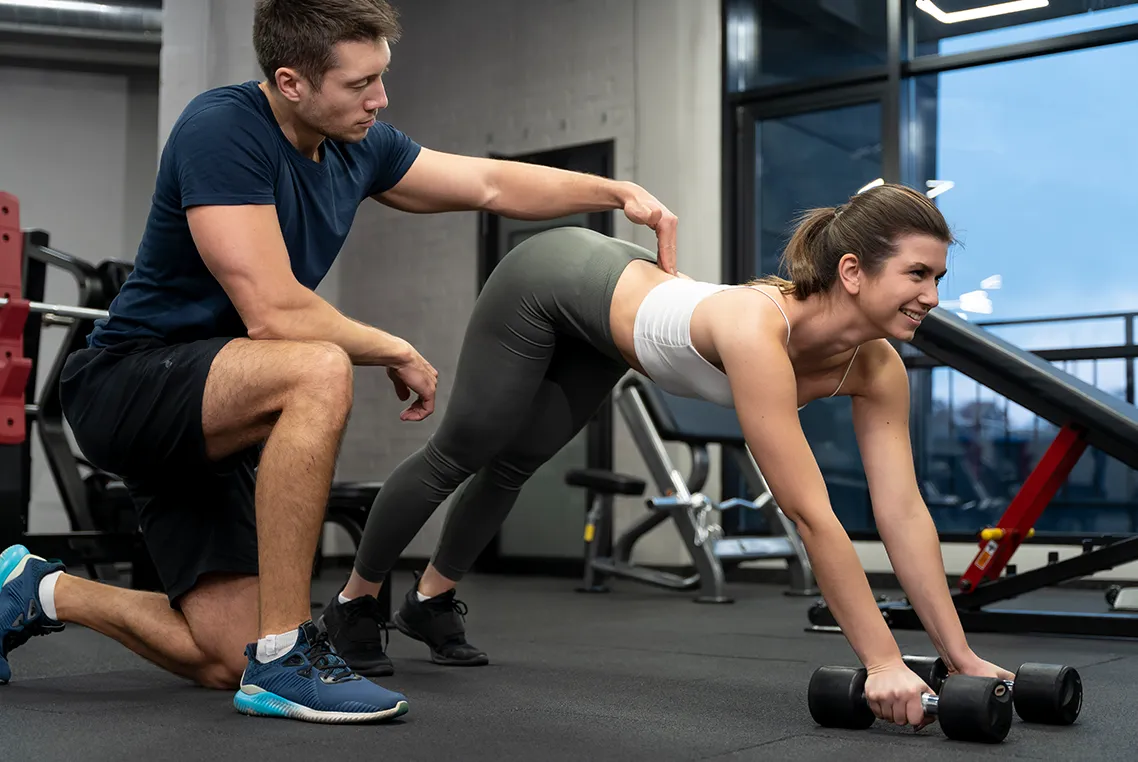
The fitness industry is booming, so becoming a personal trainer in Dublin is a great way to build yourself an exciting, rewarding career. But what does it take to get your foot in the door?
The simple answer is: a qualification. All personal trainers in Ireland need a recognised, accredited personal training qualification before they can start seeking employment and clients. With the right qualification, you’re already one step closer to fulfilling your dream of becoming a successful personal trainer.
As with most things in life, do your research before you take the plunge to ensure that you will see things through. After all, getting certified requires time and money. Completing it also demands dedication and hard work.
So, in this article, we will provide you with details that can help you make an informed decision. To be more specific, we will talk about the amount of time needed to be a certified personal trainer in Dublin. Read on if you are one of the many people considering a career in personal training and wondering how much time you need to earn your qualification and succeed in this field.
When it comes to personal training, at least one thing is certain: your clients will want to know that they’re in safe hands.
If you’re going to guide people through exercise and nutrition programmes, then you’ll need the knowledge and experience to do it safely, effectively, and professionally. This is where formal training comes in.
But how much training do you need to become a certified personal trainer in Dublin?
It can range from 3 months to 6 months, depending on the type of course or certification and training provider. For example, the average duration of a Level 2 Fitness Instructor qualification is around 6 weeks, while a part-time Level 4 Personal Training course is about 18 to 20 weeks.
Suffice to say, the duration of programmes with a higher qualification is typically longer. So, be wary if you stumble upon a Level 4 programme that is just 2 weeks long. This is a clear indication that the programme does not adhere to industry standards.
In case you are wondering, it is possible to take a Level 4 Personal Training course even if you don’t have any qualification. This is true for the National Training Centre’s Personal Training Course, which is accredited at European Qualification Framework (EQF) Level 4. The course is open to anyone who wants to work as a personal trainer.
While the duration of this EQF Level 4 programme is longer than a Level 2 or 3 course, you end up saving time and money because you already get the highest qualification available for personal trainers throughout Europe. You no longer have to spend time taking a Level 2 and then a Level 3 course.
The schedule also has an impact on the duration of the course. A part-time programme obviously takes longer to finish as compared to a full-time course.
Let’s take the case of the National Training Centre’s EQF Level 4 Personal Trainer course. The part-time programme runs for 18 weeks, with the final examination starting on week 18 and may continue until week 20.
NTC also offers a full-time personal training course. It is called an intensive programme because it only runs for about 9 weeks, with classes taking place on weekdays and lasting around 6 hours (2 classes with a lunch break in between).
It should be noted that, even if you earn your qualification, learning should not stop if you want to advance your career. You will need additional training and certification to offer specific forms of exercises like indoor cycling and kettlebell training. The same thing is needed if you want to expand your clientele by catering to special groups like pregnant women or adults.
The good news is that the duration of these advanced personal training courses is not long. For example, NTC’s Kettlebell Training requires just one on-site session, while their Exercise for the Older Adult course entails two online sessions. Better still – the Kettlebell qualification is included with the Level 4 Personal Training course at no extra charge.
To add, you need to have 20 CPD (Continuous Professional Development) points every 2 years to maintain your professional standing with REPS Ireland. This would entail completing personal training courses that are approved by REPs Ireland.
Why do regulating bodies require their members to take CPD courses? It is all about ensuring that members are able to maintain and update their knowledge, skills and competencies. With the emergence of new research and practices in the field, personal trainers need to stay up to date to provide the best service to their clients.
Ultimately, the more training you have, the better your chances are of becoming successful in the industry. This is because people are more likely to trust someone who has lots of experience and knowledge than they will someone who doesn’t have any at all.
In conclusion, you need at least 18 weeks of training to become a qualified personal trainer in Dublin if you take a part-time course and 9 weeks if you go full time. But this is just to earn your initial qualification and be eligible to prescribe exercise to the general public.
If you want to become a successful personal trainer, you need to continuously train to update or hone your skills, expand your clientele and stay credible. This means completing the required CPD points and taking advanced personal training courses.
Do you want to become a personal trainer in Dublin? Take our sought-after Fitness Instructor and Personal Trainer Qualification Course! We cater to both part-time and full-time students. To learn more about our course, call us now on 01 882 7777 or click here to leave a message.


ONSITE LESSONS
Practical classes take place either at NTC or SPORTSCO, Ringsend, Dublin 4
Saturday from 10:30am to 1pm and 2pm to 4:30pm
July 2025 – 26th♦
August 2025 – 9th, 16th, 23rd, 30th
September 2025 – 6th, 13th, 20th, 27th
October 2025 – 4th, 11th, 18th♦, 25th
November 2025 – 1st, 8th♦, 15th, 22nd, 29th, 30th
December 2025 – 6th & 7th
Examinations and/or class will start at 9:30am on dates indicated with ♦
ONLINE LESSONS
Tuesday and Thursday Evenings from 7pm to 9pm
(Recordings available afterwards)
July 2025 – 29th, 31st
August 2025 – 5th, 7th, 12th, 14th, 19th, 21st, 26th, 28th
September 2025 – 2nd, 4th, 9th, 11th, 16th, 18th, 23rd, 25th, 30th
October 2025 – 2nd, 7th, 9th, 14th, 16th, 21st, 23rd
OPTIONAL FREE COURSE
National Qualification in Kettlebell Training
November 2nd, 2025 – Sunday from 10:00-17:00